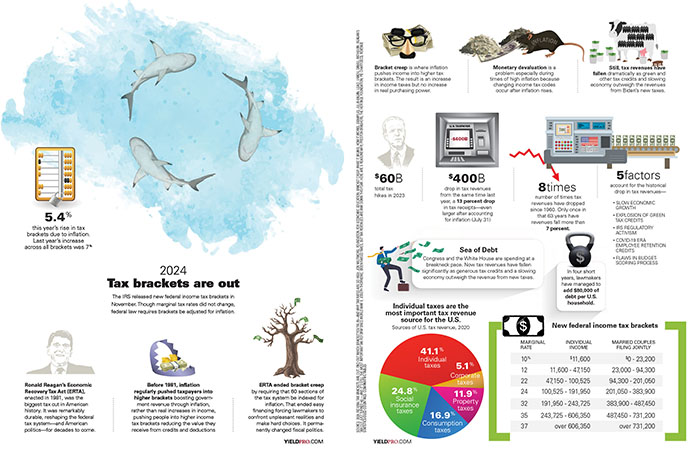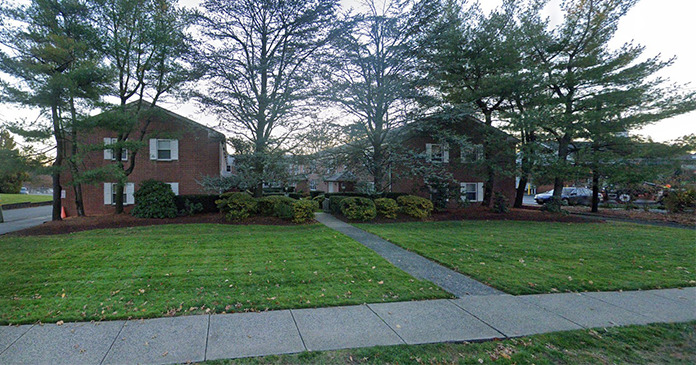“We have a slogan around here as it relates to cash flow. We say, ‘Cash is not king. Cash is the dictator in this economy,'” said Kevin Sheehan, The Bainbridge Companies’ president of property operations, who moved the firm’s management headquarters last January to the place where that money is minted.
The Bainbridge Companies, a fully-integrated family of real estate companies that has developed, owned and managed commercial real estate and apartments for the past 16 years from its home base in Southern Florida, has chosen to plant the flag of its management division in the nation’s capital because the District of Columbia and environs represent one of the few bright spots on the multifamily map today.
“This market continues to be stronger than most and is a great place to show off our strength,” said Kevin Sheehan, who joined the company nearly 15 months ago and is spear-heading its foray into the third- party management business at a time when everything depends on operations and occupancy and cash flow is the lifeblood of success.
“Demand for apartments has continued to be steady, which I think is a favorable for the Washington, D.C., market, compared to other markets that have seen demand fall off. Washington has held up right through last winter, right through the holiday season, right through the beginning of this year. We’ve had constant demand for new apartment leases, so we’ve been very pleasantly surprised,” said Sheehan, who spent the first 22 years of his career in the multifamily business with Oakwood Worldwide, managing properties and portfolios for the corporate housing giant in the Mid-Atlantic, the Southeast and Texas, followed by a year at apartment mega-REIT AIMCO before he was lured away about six years ago to work for Bozzuto Management in the Washington, D.C., market he knows so well.
“A number of the company’s principals have lived and worked here and I’ve lived and worked in this area since 1980,” Sheehan explained a few weeks ago, adding that Richard Schechter, Bainbridge Companies’ founder and a third-generation multifamily and commercial property owner, manager and developer, also spent many years in the Washington market.
The District is central to all of the East Coast, Mid-Atlantic and Florida markets the new fee-management division is targeting. “We can easily get to Florida in two hours and certainly to Boston and New York within an hour,” said Sheehan, who oversees operations at the more than 8,000 units owned by Bainbridge subsidiary Bainbridge Capital Management LLC, as well as the two fee-managed assets in Florida that are kick-starting the company’s third-party business.
Trammell Crow Residential, which sold its own management division a few years ago, turned over management of the brand new 284-unit Alexan Solmar in Ft. Lauderdale at the beginning of the year to Bainbridge Management, which previously added to its fee-management list a 20-year-old garden-style community AEW Capital Partners owns on behalf of a client — the 320-unit Solara at Wellington, about 10 miles west of West Palm Beach, which also is the parent company’s home base.
But the biggest draw is the health of the Washington, D.C., job market, where the 5.6 percent unemployment rate may not be as impressive as the 3.5 percent of the previous five years, but far outshines the national jobless average, which stood at 9.5 percent in mid-July, with the Midwest and the West reporting the highest regional rates at 10.2 percent each, according to the U.S. Department of Labor’s Bureau of Labor Statistics.
“Routinely, year-in and year-out, the Washington market creates 25,000 to 30,000 new jobs. And that comes from the federal government spending around $119 billion in this area. And that goes to government contractors, suppliers, people that associate with and benefit from the government being right here,” said Sheehan, who oversaw management of a portfolio that was 70 percent owned by others during his four years with Bozzuto Group, one of the premier fee-managers in the area.
Growth by fee management
“I came to Bainbridge with the idea that I wanted to set my sights in a similar way. In addition to what we own as a joint venture and manage, I want to build a strong portfolio of fee-managed properties,” said Sheehan. He hopes to grow the total number of units in the Bainbridge portfolio by about 20 percent this year, mostly through the addition of third-party contracts.
“We’re looking at acquisitions all the time, but what I want to do is get more fee deals within the next 12 months, so I’m spending about 50 percent of my time right now on new business development,” said Sheehan, who plans to concentrate initially on the Washington, D.C., markets and Florida. “We are also working with a developer in Atlanta, who is working on three very interesting development deals there, so we expect to enter that market later this year,” he said.
In the three years since Bainbridge Capital Management LLC, the firm’s acquisition and development subsidiary, entered the D.C. market with the purchase of an eight-property portfolio from Town & Country Trust in Virginia and Maryland, the company has purchased a total of 4,434 apartments in a dozen properties in the area. “All of those were acquired in 2006 and 2007, so some of them are notably large-sized properties. There are some small ones, but they are, on average, 300 to 500 units,” said Sheehan. Two are urban high-rises located in Crystal City, while the rest are suburban garden-style communities, ranging in age from 10 to 60+ years old.
Even in this tough economy, Sheehan’s team has been able to achieve some level of rental rate growth in close-in D.C. Metro locations like Arlington, Va., but further out into the suburbs, it’s difficult to get rent increases, even on a renewal right now, he said. However, he’s happy to report that, on average, Bainbridge-managed properties in the D.C. area are enjoying occupancies in the mid-90 percent range, with some that are 96 and 97 percent occupied.
“We’re full and we don’t have a lot of availability and that, I think, is going to give us some pricing power here,” he said, adding that all the apartment owners in the metro D.C. market are benefiting from the government effect on employment. “Typically, things are a little quiet before an administration change and then they pick up, and that’s what we’ve seen,” he said.
“Managing our pricing is a high priority for us, and we focus on this daily, both at the property and corporate levels. We price our available inventory of apartments dynamically, which means that we take advantage of opportunities to increase rents gradually on units that have low exposure or high demand,” Sheehan explained.
“Historically, the Washington market has enjoyed rent growth of about 4.5 percent each year and, even in this challenging economy, the increase for last year was around 1.8 percent,” he said, happy for a lift that would have seemed paltry in better times. “So, it did manage to squeak out some rent growth last year and it’s projected to squeak out a little bit again this year,” he said.
“In Washington, there are some areas where you’re able to gradually reduce concessions. There are some areas where you can incrementally increase rents, but it’s going to be another year or so before we increase the rents like we used to in the four, five and six percent ranges,” he said.
Rents at Bainbridge-managed assets range from an average of $1.60 per sq. ft. in the suburbs to $2.15 per sq. ft. in Crystal City, with concessions ranging from two months free in the far-out suburbs to about a month in the closer-in areas. “One of the things we’re all talking about up here in the Washington, D.C., area is that there are still a lot of concessions that have been in the market that we usually don’t see during this time of year. Typically during the second and third quarter, concessions burn off and people get their best pricing power,” said Sheehan, who blames continuing new supply for the phenomenon.
But even that threat is abating, according to Marcus & Millichap’s Q2 2009 apartment research update for the D.C. metro area. The pace of construction is decelerating, with Northern Virginia and suburban Maryland expected to gain 1,600 and 600 new rental units, respectively, this year, and another 1,300 units in the District, well below the total of nearly 5,100 apartments added to inventory in those areas last year.
The other side of the coin
“Florida is a different story,” said Sheehan, who hasn’t budgeted for any true rent growth there this year and is trying to reduce concessions, which are running two months free in some markets, while staying as full as possible to maximize cash flow in the Sunshine State, where rents vary considerably, even within sub-markets. “The six properties we developed and own have unusually large floor plans, so the price per square foot is diminished because of unit size. If I had to pick an average across Florida, it would be anywhere from $1 to $1.30 per sq. ft.”
Many of Florida’s markets are dealing with two months of concessions and Sheehan knows of a brand-new, well-situated apartment building in Orlando that just went into lease-up with concessions up to four months free, a fate that none of the 15 Florida apartment communities his management team oversees is suffering. The 4,766 one-, two-, and three-bedroom units in Bainbridge’s Florida portfolio are anywhere from 88 to 97 percent occupied in Orlando, where neighborhoods make the difference. Occupancies range from 90 to 94 percent in South Florida, depending on the sub-market. “The good news is we’re not sitting in the 80s,” he said.
And the Sunshine State is twice-challenged, secondarily by the fact that home prices have dropped so low that home-ownership now is within the reach of the average Florida resident, adding to the tenant retention challenge.
“The theme this year is it’s a transgression to lose a resident for things that you can control, like customer service. It’s a sin if somebody moves out because they were dissatisfied. You have to retain every resident and keep them happy with the value proposition of living in an apartment when the challenge is so great in the economy.
“So, we spend a lot of time coaching our property teams and creating incentives on renewal programs in order to keep our site teams very focused on making sure that our residents are satisfied and happy,” said Sheehan. He believes that effort has rewarded the company with successful lease-ups of its own communities and will be an attraction to those looking for a premier management company to get them through the tough times.
“We focus a tremendous amount of attention on leasing excellence and, in the second quarter of 2009, we were ranked in the top five nationally by the independent mystery shopping service EPMS. This has undoubtedly contributed to our success in keeping the portfolio fully occupied in such a challenging environment,” he said, adding that the company’s Web-based marketing effort, customer relations management system and other laser-sharp marketing initiatives have reduced Bainbridge’s property marketing costs by an average of 40 percent over the past few years.
With the expectation that Florida’s economy will recover faster than in other parts of the country, Bainbridge plans to increase its inventory there through development of a 185-unit apartment community on Orange Avenue in Orlando. The building features a mix of 22 studios, 88 one-bedroom and 75 two-bedroom apartments. The emphasis on studios and ones reflects the demand for smaller units created by the Orlando Health hospital campus adjacent to the property. Construction of the community that will include 3,000 sq. ft. of commercial space on the ground floor is scheduled to start at the end of this year, with deliveries about two years out, when most apartment experts expect the national recovery will be well underway. “In the D.C. area, there’s a whole lot less of the job loss issue and there’s also a whole lot less of the home price issue. Even though the prices of homes here have gone down a bit, it’s still expensive to live in the Washington, D.C., area, so a lot of people need to live in apartments,” he said.
Adding new markets
Bainbridge also hopes to start later this year on an 18-story apartment community that will be the tallest building in Bethesda, the city’s first high-rise and the company’s first ground-up development in the D.C. corridor. “Bethesda is one of the markets in the D.C. area that does well year-in and year-out,” said Sheehan.
The company also is looking at the student housing niche in North Carolina and Tallahassee and is niche-focused in the Atlanta market, where Bainbridge is talking with a developer who sees a bright future in active seniors’ housing because the 50+ renters are a little bit more affluent and looking for a very specific living experience, Sheehan said. Even with all of the city’s current economic problems and unemployment running around nine percent, he thinks Bainbridge can do very well there. “I like the Boston market because the rents are strong and there’s a need for good-quality multihousing up there. I like suburban Pennsylvania. I like downtown Philadelphia. And Northern New Jersey is a very good market, although it’s taken a little bit of a hit recently with the Wall Street fallout,” said Sheehan, reeling off a wish-list of markets where he hopes his management team will be active soon.
On both the management and development sides, North Carolina’s major cities also appeal to the company. Sheehan talked recently with another multifamily player, who really likes Dallas, about management of some apartments and potentially some joint ventures in Texas. “And one day, I would like to be out there in California,” he said.
In the meantime, the company plans to open a satellite office in New York City this year that will serve as a base for raising capital and provide another location for the management and acquisition teams.
Part of that capital likely will go to Bainbridge Distressed Property Services LLC, a newly created division of the parent company that will focus on the acquisition and de-stressing of distressed assets.
Another service Bainbridge Distressed Property Services will offer owners of distressed assets, particularly condo deals that have reverted to rentals, is the management expertise that can put heads on beds quickly.
“Because we’ve done it very well on our own portfolio in tough markets, we’re comfortable that we can do that for other folks, who need that exact same scenario in their condo units,” said Sheehan, who is seeing some signs of economic recovery, especially where his new headquarters is located. “Two or three years ago, we were all very upset about the shadow market, but today we don’t talk about it as much up here in the D.C. market. It’s still here, but it doesn’t feel like it is as big a problem as it used to be. So, I am seeing recovery. It doesn’t feel like we’re sliding down into an abyss. I feel like we’ve got some footing, some traction. We’re halfway through this year and I’m looking rather optimistically towards the second half of the year,” he said.















